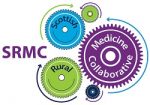A WORLD-FIRST educational initiative will help to ensure the stability of life in some of Scotland’s remote and rural communities, it’s been claimed.
A webinar for this joint initiative by the Remote and Rural Healthcare Educational Alliance (RRHEAL), NHS Education for Scotland (NES) and the SRMC is to be held on 26th May will see the launch of a new education pathway for multi-disciplinary rural advanced practitioners (RAPs) – a series of stepping stones that will take a clinician through to Rural Consultant level.
The pathway reflects the growing demand for greater emphasis to be placed on the very distinctive skills sets required of clinicians practising in the country’s more isolated communities.
“It’s an important and very exciting development,” enthused Claire Savage, a Senior Project Officer/Researcher with NHS Highland who has been working with RRHEAL on the initiative on behalf of the Scottish Rural Medicine Collaborative. “The SRMC has been working to change attitudes towards remote and rural working in Scotland. It’s absolutely not the end of the road, as some people may think; it’s something that offers a rewarding career and having an educational programme specifically for remote and rural multi-disciplinary practitioners will be a tremendous step forward.
“It can only improve recruitment and retention in these areas and therefore improve the stability of remote and rural communities.”
Claire contends that no two people have the same understanding of what an advanced practitioner, let alone a rural advanced practitioner, actually is and she believes the new pathway will help to ‘sell’ the role both to those who already work in remote communities and to people from less rural areas.
“There’s been a great deal of interest in this work – and not only from people who live and work in Scotland’s remote and rural communities,” she said. “Nowhere else in the world is there an education pathway for multi-disciplinary rural advanced practitioners, and people across the UK and in other countries are looking at what we’re doing with interest.”
Work on the new pathway has been ongoing for several years. The Remote and Rural Healthcare Educational Alliance (RRHEAL) has been collaborating with the SRMC on the initiative, and a suggested rural advanced practitioner capability framework has been produced in close consultation with remote, rural and island health and care stakeholders across all of Scotland. The Scottish Government, BASICS Scotland, the Royal College of Surgeons and the NES rural GP Fellowship are among some of the other partners that have been involved in the development of the pathway. The launch webinar for the Multidisciplinary Rural Advanced Practice Education Pathway will focus on this partnership working and outline the rationale for this new educational development and how it might support rural practice. The online event will also consider the potential for partnership working between higher education establishments for the delivery of the RAP programme in the long term– something that’s key to its future success.
Claire explained: “Having mapped out the capabilities/competencies and education pathway the next phase is commissioning the right education providers to deliver the programme. We can then look forward to getting people trained – work that will concentrate on developing their remote and rural practice resilience, knowledge, skills, confidence and leadership.”
She continued: “We have learnt a lot during the pandemic about the importance of community resilience, we see rural advanced practitioners as having an important role in and as part of rural communities. We have also learnt much about value and the joy of working within a supportive team, and that’s an important part of what this work is all about.”
The launch event will also feature a series of podcasts, including one by Martine Scott, until recently the SRMC’s programme manager, and another by Kim Anderson, an advanced nurse practitioner in Shetland. There will also be representation from Scottish Government, University lectures and others, all with an interest in supporting rural practice.
